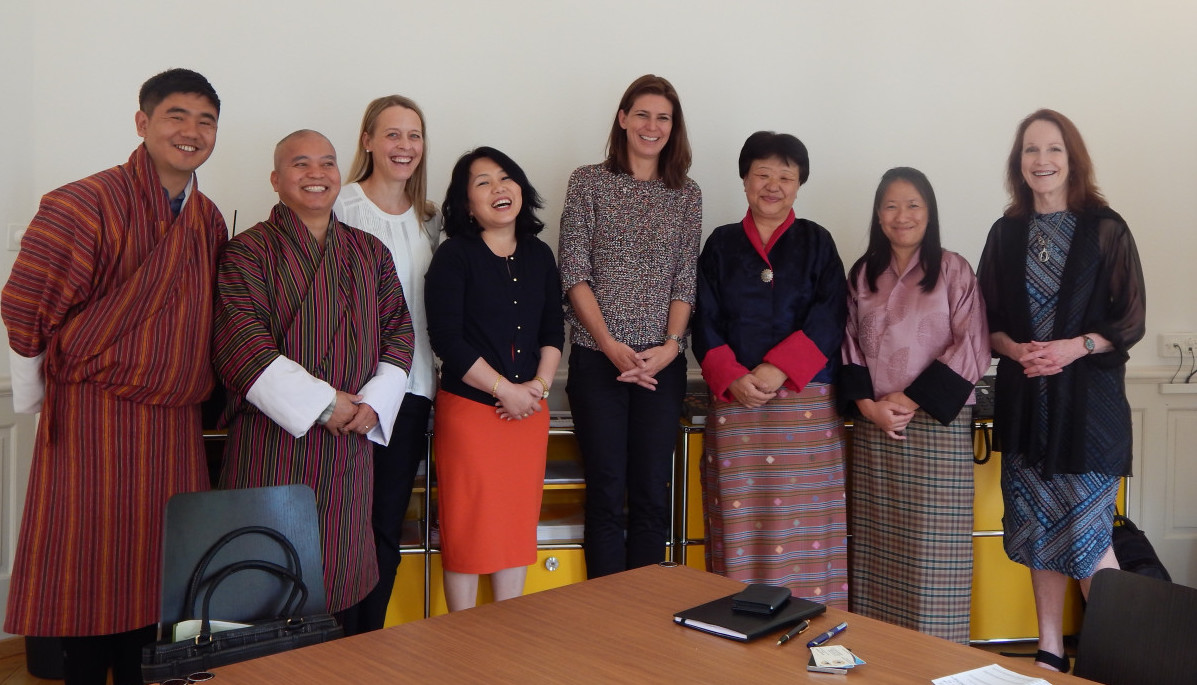Basel Institute and Anti-Corruption Commission of Bhutan sign MoU

On 24 May 2017, the Basel Institute on Governance and the Anti-Corruption Commission of Bhutan signed a Memorandum of Understanding (MoU). Both parties reconfirmed their mutual intention to continue to strengthen and promote their combined efforts to prevent and combat corruption in Bhutan.
The Basel Institute has been providing technical assistance to the Anti-Corruption Commission (ACC) of Bhutan in relation to its national anti-corruption endeavours for several years now. Already in 2011 it guided the ACC in the development and implementation of its 10-year institutional development plan, which included a complete restructuring of the agency with a view to better coordinating preventive and enforcement functions and strengthening the agency's independence. This initial work was followed up with support to the development of a national anti-corruption strategy, capacity building in financial investigation, and legal and policy advice relating to the use of legal intercepts.
During these formative collaboration years, much of the Basel Institute's technical support to the ACC was made possible through financing from the Swiss Agency for Development and Cooperation (SDC) in the context of SDC's bilateral technical assistance program for Bhutan. The Basel Institute is looking forward to continuing its excellent collaboration with the ACC as experienced to date and remains convinced that Bhutan will continue making visible inroads in tackling corruption heads-on, both in terms of prevention and enforcement.
The official signing ceremony took place at the Basel Institute’s headquarters in Basel in the presence of Kinley Yangzom, ACC Chairperson and her accompanying delegation with Kinley Wangmo, Karma Thinlay and Kelden Jamtsho. The representatives from the Basel Institute included Gretta Fenner, Managing Director, Phyllis Atkinson, Head of ICAR Training, Andrea Poelling, Head of Operations and Claudia Baez Camargo, Head of Governance Research.


